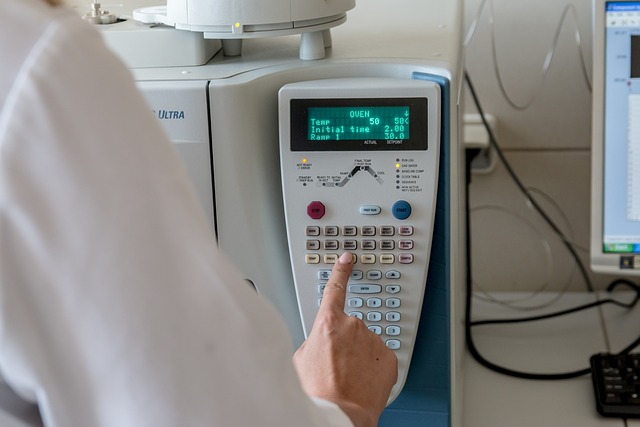In the UK, the ferritin blood test has gained importance as a simple yet effective method to assess iron status, helping to identify deficiencies or at-risk individuals for anaemia. This non-invasive test is beneficial for those experiencing symptoms like fatigue, weakness, or pale skin. Home testing kits are increasingly popular for their convenience, offering quick procedures and immediate results within days, eliminating anxiety around clinic visits. Interpreting ferritin levels (typically 20-150 μg/L) is crucial; low levels indicate iron deficiency anaemia, while elevated levels may suggest conditions like hemochromatosis or chronic inflammation. Healthcare professionals use these results alongside other tests for personalized interpretations.
“Discover the power of at-home health testing with our guide to Ferritin Blood Tests in the UK. Understanding ferritin, the essential iron storage protein, is key to overall well-being. Home kits offer a convenient, discrete way to monitor your ferritin levels, empowering you to make informed decisions about your health.
Learn why these tests are valuable, how to interpret results, and explore the benefits of choosing home testing over traditional methods. Take control of your health journey today with our comprehensive guide.”
- Understanding Ferritin: The Iron Storage Protein
- Why Choose a Home Testing Kit for Ferritin?
- How to Interpret Your Ferritin Blood Test Results
Understanding Ferritin: The Iron Storage Protein
Ferritin, often referred to as the iron storage protein, plays a vital role in maintaining healthy blood cells and overall well-being. It’s a marker of iron stores in the body, with high levels indicating sufficient iron reserves and low levels suggesting potential iron deficiency. In the UK, the ferritin blood test has gained importance as a way to assess an individual’s iron status, especially for those concerned about health at home. This simple yet powerful test allows people to gain insights into their body’s iron levels and take proactive measures if needed.
Understanding ferritin levels is crucial for several reasons. Iron is an essential mineral that supports various bodily functions, including energy production, immune system regulation, and cognitive development. A ferritin blood test in the UK can help identify individuals at risk of anaemia or iron-related disorders, enabling timely interventions. It’s particularly beneficial for those with symptoms like fatigue, weakness, or pale skin, as it provides a non-invasive way to investigate potential underlying iron deficiencies.
Why Choose a Home Testing Kit for Ferritin?
Many people are turning to home testing kits for Ferritin Blood Test UK as a convenient and accessible way to monitor their health. Ferritin, a protein that stores iron in your body, is often overlooked but plays a crucial role in overall well-being. By choosing a home testing kit, you gain the power to take control of your health from the comfort of your own home. This is especially beneficial for those who may feel anxious about visiting a clinic or hospital, or those with busy schedules who struggle to find time for regular check-ups.
Home testing kits offer several advantages. They are usually quick and easy to use, requiring only a small sample of blood, which can be taken at home without the need for medical training. Results are often available within days, providing individuals with immediate insights into their Ferritin levels. This early detection can be crucial in managing conditions related to iron storage, such as anemia or hemochromatosis. Moreover, these kits provide a level of privacy and convenience that traditional testing methods may not offer.
How to Interpret Your Ferritin Blood Test Results
Interpreting your ferritin blood test results is an important step in understanding your iron storage levels and overall health. In the UK, a normal ferritin range typically falls between 20-150 micrograms per litre (μg/L) for adults. However, this can vary slightly depending on age and gender.
If your test results show a ferritin level below 20 μg/L, it may indicate iron deficiency anaemia. This means your body isn’t storing enough iron, which can lead to fatigue, weakness, and pale skin. Conversely, elevated ferritin levels above 150 μg/L could suggest excess iron accumulation, potentially indicating conditions like hemochromatosis or chronic inflammation. Your healthcare professional will consider these factors along with other test results to provide a comprehensive interpretation tailored to your individual health profile.
A Ferritin Blood Test UK can be a convenient and accessible way to monitor your iron storage levels. By understanding ferritin, choosing the right home testing kit, and interpreting results accurately, you can take control of your health at home. This simple step can help identify potential deficiencies or excesses, enabling you to make informed decisions about your diet and overall well-being.
